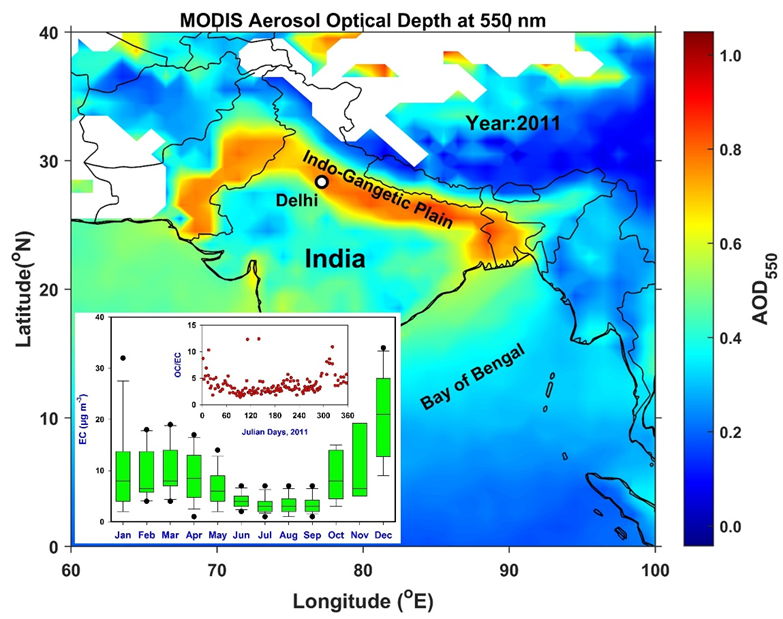Scientist Profile

Dr. Deewan Singh Bisht
Designation
: Scientist B
Phone
: +91-(0)11-28743976
Fax
: +91-(0)20-25865142
Email ID
: dsbisht[at]tropmet[dot]res[dot]in
| Degree | University | Year | Stream |
|---|---|---|---|
| Ph.D. | Banaras Hindu University (BHU), Varanasi, U.P. | 2014 | Physics |
| M.Sc. | H.N.B. Garhwal University Srinagar, Uttarakhand | 2002 | Physics |
| B.Sc | H.N.B Garhwal University Srinagar, Uttarakhand | 2000 | Physics, Chemistry , Mathematics |
 Physical and chemical characteristics of atmospheric aerosols
Physical and chemical characteristics of atmospheric aerosols
 Organic carbon and Elemental carbon/Black Carbon in the boundary layer, Sources and their environmental impacts
Organic carbon and Elemental carbon/Black Carbon in the boundary layer, Sources and their environmental impacts
 Atmospheric Aerosol Measurements: Optical and Radiative Properties
Atmospheric Aerosol Measurements: Optical and Radiative Properties
 Chemistry of precipitation (Rain, Fog, Snow and Dew) and Gaseous pollutants studies
Chemistry of precipitation (Rain, Fog, Snow and Dew) and Gaseous pollutants studies
 Air quality sources and their environmental impacts
Air quality sources and their environmental impacts
| Award Name | Awarded By | Awarded For | Year |
|---|---|---|---|
| Excellence Award | Indian Institute of Tropical Meteorology, Pune | Research contribution | 2019 |
| MoES Annual Award | Ministry of Earth Sciences, New Delhi | Research contribution | 2015 |
| Research Grant | Stockholm University, Sweden | Research visit | 2014 |
| Best Paper Award | TROPMET-2012, Deharadun | Best paper | 2012 |
| Year | Designation | Institute |
|---|---|---|
| Jun 2023-Present | Scientist B | Indian Institute of Tropical Meteorology, Pune |
| Nov 2014-Dec 2014 | Visiting Scientist | Stockholm University, Sweden |
| 2009-2023 | Junior Scientific Officer | Indian Institute of Tropical Meteorology, Pune |
| 2004-2008 | Senior Scientific Assistant | Indian Institute of Tropical Meteorology, Pune |
Research Highlight

Air quality in megacity Delhi affected by countryside biomass burning
During the high loadings of PM2.5 and BC in the winter, BC in Delhi come to a greater extent from biomass burning, on average 40%. These elevated winter-time biomass contributions coincide with regional-scale crop residue burning, in addition to other countryside biomass burning. Hence, the paradigm that megacities are strongly affecting their surrounding regions are here complemented, or seasonally even reversed, as countryside combustion practices are here seen to strongly deteriorate the air quality and contribute to wintertime haze in megacity Delhi.


